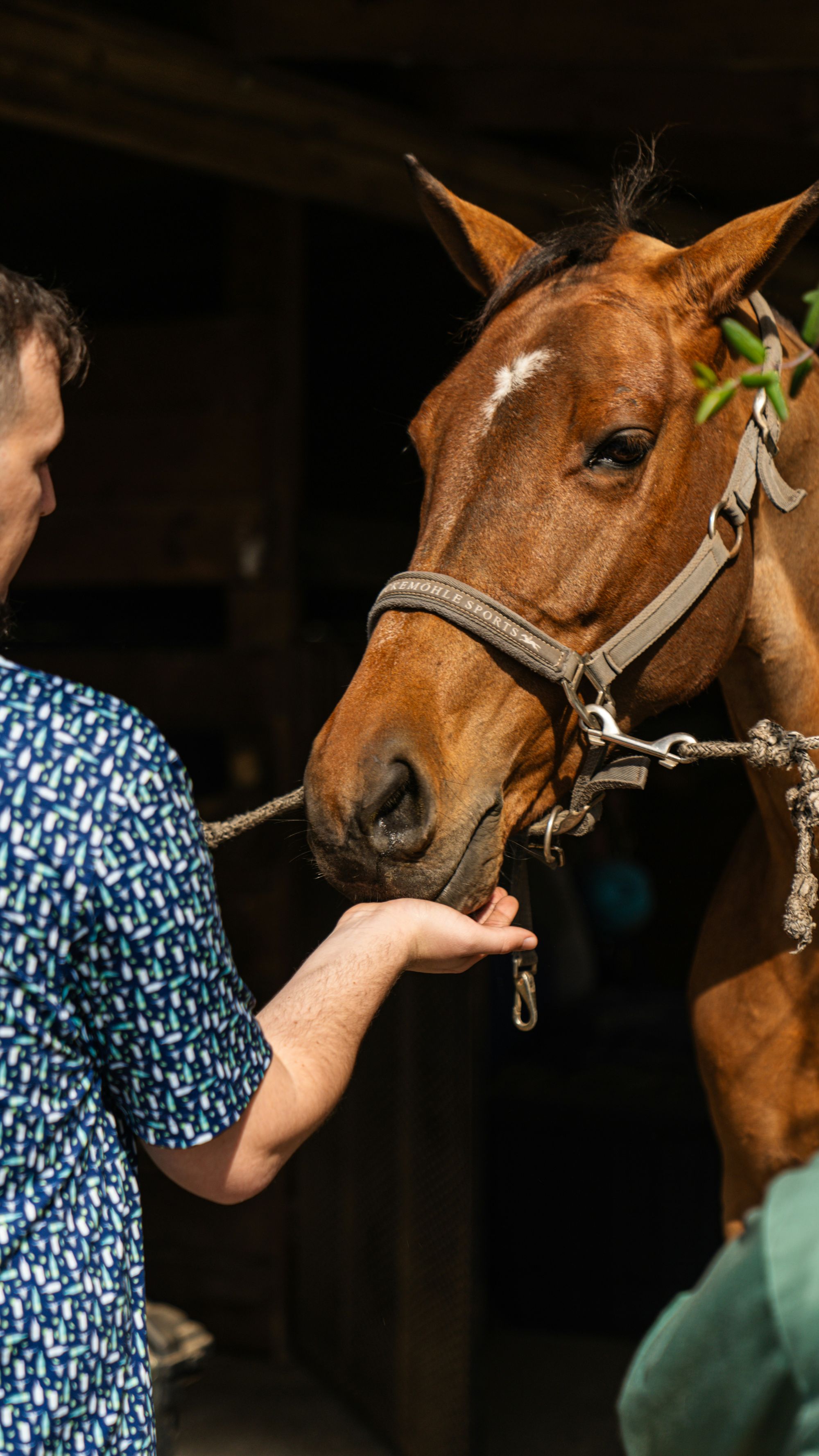Purposeful training

In the horse world, if you need a horse quickly and have the extra money, you'll likely purchase an older horse, already trained to do the specific tasks needed.
On the other side of the market, there are also those who will only purchase younger horses who've had little to no training, because they are not interested in having someone else train their horse. Most of the time, this buyer's market is reserved for the horse trainers.
You see, there's a difference between a horse owner and a horse trainer.
There is a reason why the horse trainer would not allow someone else to train their horse. And it's not because he's stubborn or too cheap to pay for an older horse whose finished it's training.
The reason is that a horse trainer sees himself as responsible for how that horse turns out. For this type of horseman, it brings him great joy to spend time building a relationship and training his own horse.
This type of horseman is willing to accept the failures, and work through the mistakes with his horse. The relationship with the horse is top priority for the trainer, not the amount of "tasks" the horse can do, or how many "commands of obedience" the horse can perform.
The bottom line is, horses need owners and trainers who will give them a purpose in life. This purpose is developed through relationship building.
My son, who is 14 years old, (at the time of this writing), works 20 hours a week at a horse ranch. Some days he'll have to work up to 11 horses, but something is different when it's time for him to work his OWN horse. It's different because he not only owns the horse, but is also building a relationship with his horse through purposeful training.
Now, let's make the connection to parenting.
If you have the money to hire the best babysitters and the finest tutors to train your children, be sure it's not at the expense of scheduling your own personal time teaching and training them.
Parents must see themselves as personally responsible for helping their children develop a godly purpose in life.
The bottom line is: everything has a relationship attached to it.
The question becomes: is that relationship good or bad?
Does it have a purpose, or is it unintentional and directionless?
Consider praying through how the Lord would have you develop purposeful relationships, based on joyful memories in the Lord.
Building a joyful relationship takes time. And although it requires patience to deal with setbacks and work through mistakes, it is one of the wisest investments a parent can make.
After your children are grown, they will appreciate the time you invested in them.
3 John 4 I have no greater joy than to hear that my children walk in truth.
